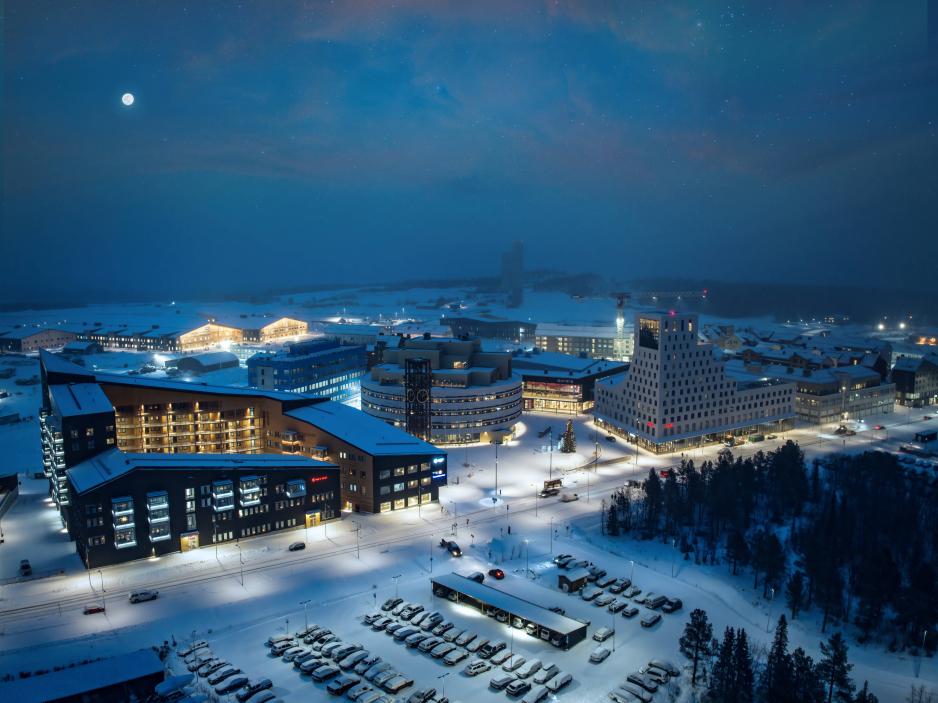The Arctic Mining City Kiruna Can Become the European Capital of Culture

Winter photo of Kiruna's new city center. Due to the mining activity, the center of the northern Swedish city has been moved further east. The old city hall has been torn down, and a new one has been built, named "Kristallen" or "The Crystal" (behind the clock tower). The Norrbotten County Art Museum is also located here. (Photo: Brightnest)
On Friday, it will be decided whether Kiruna in Northern Sweden will be the European Capital of Culture in 2029. If so, it will be the third Arctic city to receive the title this decade.
On Friday, December 6th, it will be decided whether Sweden's northernmost city, Kiruna, will be named the European Capital of Culture in 2029.
If so, it will be the third Arctic city to receive the title this decade. While the capital of culture year is nearing an end for Bodø in Northern Norway, Oulu, just south of the Arctic Circle in Northern Finland, will be the European Capital of Culture in 2026.
Sweden will host the cultural year for the third time in 2029. In addition to Kiruna, Uppsala, north of Stockholm, has also been nominated for the title.
The Arctic mining city
"Nestled in the northern reaches of Sweden, the small yet rapidly expanding mining city of Kiruna seeks to share its strong blend of Arctic and industrial narrative through creative experiences," reads a news release from the European Commission on the nomination.
Kiruna is built around the mining areas of the Swedish state-owned mining company LKAB, which began its operations here over 120 years ago. Today, the Kiruna mine is the world's biggest underground iron ore mine, and LKAB is Europe's largest iron ore producer.
Over the years, mining activity has caused cracks in the ground of the northern Swedish town. Due to this development, and to ensure continued mining, the city center has been moved three kilometers further east in a large-scale urban relocation project that is still ongoing.
Kiruna municipality's websites state that the topics to be explored as the European Capital of Culture include how the city will find itself, its character, and its culture.
"We are now building a new city center, and we are managing our history by letting culture lead the way, creating quality of life and joy for our inhabitants and visitors," the municipality adds.
"This is exactly what we think Kiruna needs right now, a new goal, a new dream of what this municipality and city could hold," says one of the project managers, Emma Jonsson, in Kiruna municipality, to SVT.
Motivate to stay
In its justification for applying for the title, Kiruna municipality highlights the culture's significance in keeping people in the city and in attracting new residents northward.
"Today, Kiruna has international recognition thanks to our unique industries, climate, culture, and urban transformation. However, the municipality is working to attract new inhabitants as there are currently 1000 available jobs in the municipality."
"To reach the aim of 25,000 inhabitants by 2030, the municipality must motivate Kiruna's inhabitants to stay and get new people to move here. Kiruna needs culture to ensure an increased supply of expertise and attractiveness in the municipality and the region. Becoming the European Capital of Culture will secure the budget for culture and ensure that no more cuts are made," writes the municipality.






